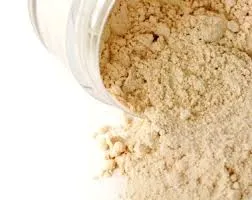The Significance of Bioactive Quinone A Focus on PQQ
Pyrroloquinoline quinone (PQQ) is a redox-active cofactor that has garnered significant attention in recent years due to its bioactive properties. This enigmatic compound, present in various organisms and food sources, is not only a crucial factor in energy metabolism but also exhibits antioxidant, neuroprotective, and growth-promoting activities.
What is PQQ?
PQQ is a small quinone molecule that serves as a cofactor for certain enzymes, particularly dehydrogenases. It plays a pivotal role in cellular energy production by facilitating the transfer of electrons in metabolic pathways. Found in foods such as kiwifruit, green tea, and fermented soy products, PQQ was first discovered in bacteria, where it enables them to utilize various substrates efficiently. The presence of PQQ in the human diet suggests its physiological importance.
Antioxidant Properties
One of the most fascinating aspects of PQQ is its potent antioxidant capabilities. Oxidative stress, caused by an imbalance between free radicals and antioxidants in the body, has been linked to numerous health issues, including neurodegenerative diseases, cardiovascular disorders, and aging. PQQ aids in mitigating oxidative stress by scavenging free radicals and enhancing cellular defenses. Research has shown that this compound can promote the expression of genes linked to antioxidant production, thereby bolstering the body's natural defense mechanisms.
Neuroprotection and Cognitive Function
PQQ’s neuroprotective properties are especially noteworthy. Studies have demonstrated that PQQ can support neuronal survival and promote synaptic function, making it an intriguing candidate for neurodegenerative disease prevention. In animal models, supplementation with PQQ has been shown to enhance cognitive function, improve memory, and protect against neurodegeneration. These findings correlate with its ability to promote mitochondrial biogenesis, offering further benefits in terms of energy production and cellular health.
bioactive quinone pqq

Mitochondrial Health
Mitochondria, often referred to as the powerhouses of the cell, are essential for energy production and overall cellular health. A decline in mitochondrial function is associated with aging and various diseases. PQQ has been identified as a mitochondrial protector. It stimulates the growth and function of mitochondria, promoting the production of energy in the form of adenosine triphosphate (ATP). This mitochondrial support can lead to increased vigor and improved physical performance, providing individuals with a greater sense of well-being.
Growth Factor
In addition to its antioxidant and mitochondrial benefits, PQQ has been recognized for its role as a growth factor. It promotes cellular growth by stimulating the synthesis of proteins involved in cellular proliferation and differentiation. This property has implications for various fields, including regenerative medicine and tissue engineering, where PQQ could play a role in enhancing tissue repair and recovery.
Incorporating PQQ into Your Diet
To harness the benefits of PQQ, individuals can include foods rich in this compound in their diet. Kiwifruit, fermented foods, and green tea are excellent sources. Alternatively, PQQ is also available as a dietary supplement. However, it is crucial to consult with a healthcare professional before starting any supplement regimen to ensure safety and effectiveness.
Conclusion
Pyrroloquinoline quinone (PQQ) is a remarkable compound that holds great promise for its numerous health benefits. With its antioxidant properties, neuroprotective effects, support for mitochondrial health, and growth-promoting capabilities, PQQ is emerging as a significant player in the field of health and wellness. As research continues to unfold, we may discover even more about this bioactive quinone and its potential to enhance human health and longevity.

